|
Conference Session 4: Strengthening Community and Connectedness in the Midst of a Pandemic
Friday, October 29, 2021, 9:30 AM - 12:00 PM PDT
Category: Educational Events
Strengthening Community and Connectedness in the Midst of a PandemicSession Facilitator: Jenny Sasser, PhD Addressing Social Isolation in Nursing HomesPresenters:
Summary: This presentation describes a pilot project in Bend, Oregon funded in part by St. Charles Hospital and. Deschutes County. The project attempted to intervene with two participating skilled nursing facilities when Covid-19 infection rates were at an all time high in 2020. Through guidance from a local advisory group, the project's aim was directed at positively impacting infection control, staff self care and social isolation suffered by residents. Through design expertise from Modern Empathy, the project developed a set of innovative, illustrated and laminated flip cards for facility staff, with the goal of offering up accessible reminders about infection control and self care. A partnership with the Bend Rotary group also allowed for distribution of resident holiday greeting cards and yard signs thanking SNF staff for their ongoing service. Learning Objectives:
Addressing the Digital Divide Among Culturally Diverse, Linguistically Isolated, Low Income Older Adults: A ModelPresenter:
Summary: The COVID-19 pandemic has widened health disparities in the US, particularly among the most vulnerable segments of the population. Low-income older adults may be among the most impacted by the pandemic due to limited access to information, limited access to social and health services, and social isolation combined with digital exclusion, also known as the digital divide. Lower-income and older age are two major independent risk factors for digital exclusion, that when combined, create a technology gap that is particularly difficult to bridge. Even with connectivity and access to devices, older adults often experience barriers related to knowledge, skills, and experience, and motivational factors related to using - or learning to use - a particular form of technology. Few studies have examined these issues within low-income older adults, and even less have examined these issues among those who are culturally diverse and linguistically isolated. The "Lighthouse Project for Older Adults" is a public-private partnership led by CITRIS and the Banatao Institute at UC Berkeley and UC Davis, in partnership with senior housing providers and technology corporations to create a nationally-replicable, scalable model to address the digital divide in affordable senior housing. In this presentation, Ms. Martinez will share about findings from a 3-month pilot with older adults (N=20) living in affordable senior housing, representing six cultures and five languages. In addition to receiving Google Nest Hub Max devices (with Volara Senior Living interface), participants received weekly video calls from student volunteers to increase motivation and engagement and provide tech support. Learning Objectives:
Warm and Caring Neighbors Who Have Become FriendsPresenters:
Summary: Before residential care, there are Villages. A Village is a neighborhood-based membership organization that invigorates older adults’ lives with new experiences and people. These connections were especially important during COVID when seniors were isolated from family and communal living could be deadly. The Village Movement is thriving in the greater Portland metropolitan area with 11 Villages working to expand friendships and help seniors live independently with the support of volunteers. Each of the 11 Villages offers a range of programs and opportunities for social and service-based connections with their volunteer base, operating in a manner that is in keeping with the character of that Village and its unique “personality” in the larger Metropolitan community. Learning Objectives:
Continuing Education Credit: Each session has been approved for 2 CE credits (NASW Oregon Chapter) and 2 AFH training credits - that's a total of 8 CE credits if you attend the entire series. There will be a $5 fee per session for NASW credits. Regular Certificates of Attendance can also be issued. This is the last of four sessions of OGA's 2021 virtual conference. You can register for individual sessions or, at a discount, for the entire conference series. For an overview of all sessions, please visit the conference page.
Dr. Pelham has expertise in global issues in aging and gerontology, Age-Friendly Cities and community development, community-based health and human services, qualitative research methods, graduate gerontology curriculum development, geriatric care management, life-long learning, and credentialing and accreditation in the field of gerontology. She has lectured and taught for several years internationally and in the former European Masters in Gerontology (EuMaG) Summer School in multiple countries around the world. Dr. Pelham's current interests are: creating Age-Friendly Cities and communities, professionalizing the discipline of Gerontology and compassion as a core value in aging. She recently contributed a chapter: Creating Compassionate Communities: The Intersection of Resilience, Democracy and Age-Friendliness, in Sharing Compassion, Rainsford Press, Dublin, Ireland, 2018.
Ms. DeLange Martinez brings over a decade of experience in the field of gerontology, including teaching part-time at San Jose State and Oregon State Universities, managing educational initiatives for the Alzheimer’s Association of Northern California, consulting with three counties along the West Coast on Age Friendly and Dementia Friendly initiatives, launching an intergenerational TimeBank, leading an award-winning bilingual health promotion campaign "Healthy Steps in Silicon Valley," and helping organize interfaith summit meetings to raise awareness about elder abuse and neglect. She has a Masters in Gerontology from San Francisco State University and a Bachelor’s in Molecular and Cellular Biology from Cal Poly San Luis Obispo.
Lyn was excited to "discover" Villages NW when she was looking for a way to expand the options for older adults to retain their independence and autonomy. She joined the Board of Directors as managing director in 2015. Lyn is also a member and volunteer in River West Village in Southwest Portland.
President of Nancy Doty, Inc. she previously served as Deputy Public Guardian for Multnomah County, and is a Founding Member of the Guardian/Conservator Association of Oregon. Nancy has also been involved in Third World women’s health care issues with Dining for Women, and served on the Boards of the Reed College Women’s Committee (women seeking college education through non-traditional paths), and Women’s Care Foundation (with a focus on health, safety, and skills training for women in the Portland Metro area). Nancy was also instrumental in launching Garden Partners, offering gardening opportunities for persons in long term care facilities. Supporting Sponsors for this session:
Session Sponsors for this session:
The entire conference series is sponsored by:
Contact: [email protected] |





 Prev Month
Prev Month View Month
View Month Search
Search Go to Month
Go to Month Next Month
Next Month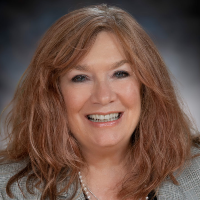 Anabel Pelham, PhD, is president of the National Association of Professional Gerontologists (NAPG) and emeriti professor and founding director of the Gerontology Program at San Francisco State University. She is also Founding Director of the Center for Age-Friendly Excellence (CAFE), a project of the Los Altos Community Foundation and a past member of the Foundation's Board of Directors, and a member of the Advisory Council of Grupo Dabvsa, Mexico. Dr. Pelham is past president of the California Council on Gerontology and Geriatrics (CCGG) and is an active member of GSA, CAG and IAGG and serves on the Academy for Gerontology in Higher Education's Global Aging Committee. She is a former Chair of the Senior Commission for the City of Los Altos/Los Altos Hills, where she led the successful initiative to make Los Altos and Los Altos Hills the first Age-Friendly (City and Town) in California.
Anabel Pelham, PhD, is president of the National Association of Professional Gerontologists (NAPG) and emeriti professor and founding director of the Gerontology Program at San Francisco State University. She is also Founding Director of the Center for Age-Friendly Excellence (CAFE), a project of the Los Altos Community Foundation and a past member of the Foundation's Board of Directors, and a member of the Advisory Council of Grupo Dabvsa, Mexico. Dr. Pelham is past president of the California Council on Gerontology and Geriatrics (CCGG) and is an active member of GSA, CAG and IAGG and serves on the Academy for Gerontology in Higher Education's Global Aging Committee. She is a former Chair of the Senior Commission for the City of Los Altos/Los Altos Hills, where she led the successful initiative to make Los Altos and Los Altos Hills the first Age-Friendly (City and Town) in California.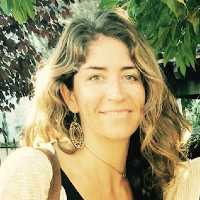 Elizabeth Johnson, MS, holds a master's degree in Community and Regional Planning from the University of Oregon. Her work as a facilitator and experiential educator has brought her to more than 30 countries around the globe. This international exposure to a diversity of cultural and social contexts has sparked in her an appreciation for the importance of integrating all needs and voices into the fabric of a functional society, especially those of an aging population. She currently works as the Executive Director and an end of life doula for the Peaceful Presence Project, a nonprofit that seeks to help Central Oregonians live well, age well and die well by reimagining the way the community talks about, plans for and experiences the last stage of life. She also works as the Central Oregon Lead for the Center for Age Friendly Excellence. She’s passionate about the integration of age inclusive initiatives into local communities, as well as honest dialogues around the complexities of the aging and dying process.
Elizabeth Johnson, MS, holds a master's degree in Community and Regional Planning from the University of Oregon. Her work as a facilitator and experiential educator has brought her to more than 30 countries around the globe. This international exposure to a diversity of cultural and social contexts has sparked in her an appreciation for the importance of integrating all needs and voices into the fabric of a functional society, especially those of an aging population. She currently works as the Executive Director and an end of life doula for the Peaceful Presence Project, a nonprofit that seeks to help Central Oregonians live well, age well and die well by reimagining the way the community talks about, plans for and experiences the last stage of life. She also works as the Central Oregon Lead for the Center for Age Friendly Excellence. She’s passionate about the integration of age inclusive initiatives into local communities, as well as honest dialogues around the complexities of the aging and dying process.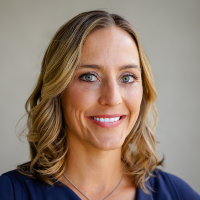 Pauline DeLange Martinez, MA, is a doctoral student in Public Health Sciences at the University of California Davis, and a fellow with their "Healthy Aging in a Digital World" initiative. Her dissertation work is focused on evaluating the "Lighthouse Project for Older Adults," which aims to create a replicable, scalable model to address the digital divide in affordable senior housing. In addition, Ms. Martinez leads outreach and engagement of vulnerable populations for the "Healthy Davis Together" initiative, a nationally recognized model to prevent the spread of COVID-19. She also serves as a Senior Research Associate for the 'Center for Age Friendly Excellence.'
Pauline DeLange Martinez, MA, is a doctoral student in Public Health Sciences at the University of California Davis, and a fellow with their "Healthy Aging in a Digital World" initiative. Her dissertation work is focused on evaluating the "Lighthouse Project for Older Adults," which aims to create a replicable, scalable model to address the digital divide in affordable senior housing. In addition, Ms. Martinez leads outreach and engagement of vulnerable populations for the "Healthy Davis Together" initiative, a nationally recognized model to prevent the spread of COVID-19. She also serves as a Senior Research Associate for the 'Center for Age Friendly Excellence.'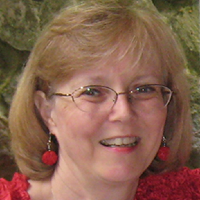 Lyn Trainer was led to a career in nonprofits at Doernbecher Children’s Hospital Foundation and several professional associations after taking a summer job in the Volunteer Services office at OHSU. One of the first employees hired when Doernbecher resurrected its community-based fundraising activities after a 50-year hiatus, she was privileged to be part of the team that built the new hospital which opened in 1998.
Lyn Trainer was led to a career in nonprofits at Doernbecher Children’s Hospital Foundation and several professional associations after taking a summer job in the Volunteer Services office at OHSU. One of the first employees hired when Doernbecher resurrected its community-based fundraising activities after a 50-year hiatus, she was privileged to be part of the team that built the new hospital which opened in 1998. Nancy Doty's background in nursing, guardianship and conservatorship, and care coordination has led her to a natural fit at Villages NW, where she has served on the Board since 2016.
Nancy Doty's background in nursing, guardianship and conservatorship, and care coordination has led her to a natural fit at Villages NW, where she has served on the Board since 2016.
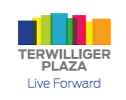

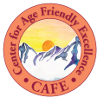
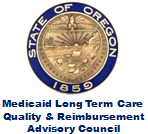










 Export Event
Export Event 